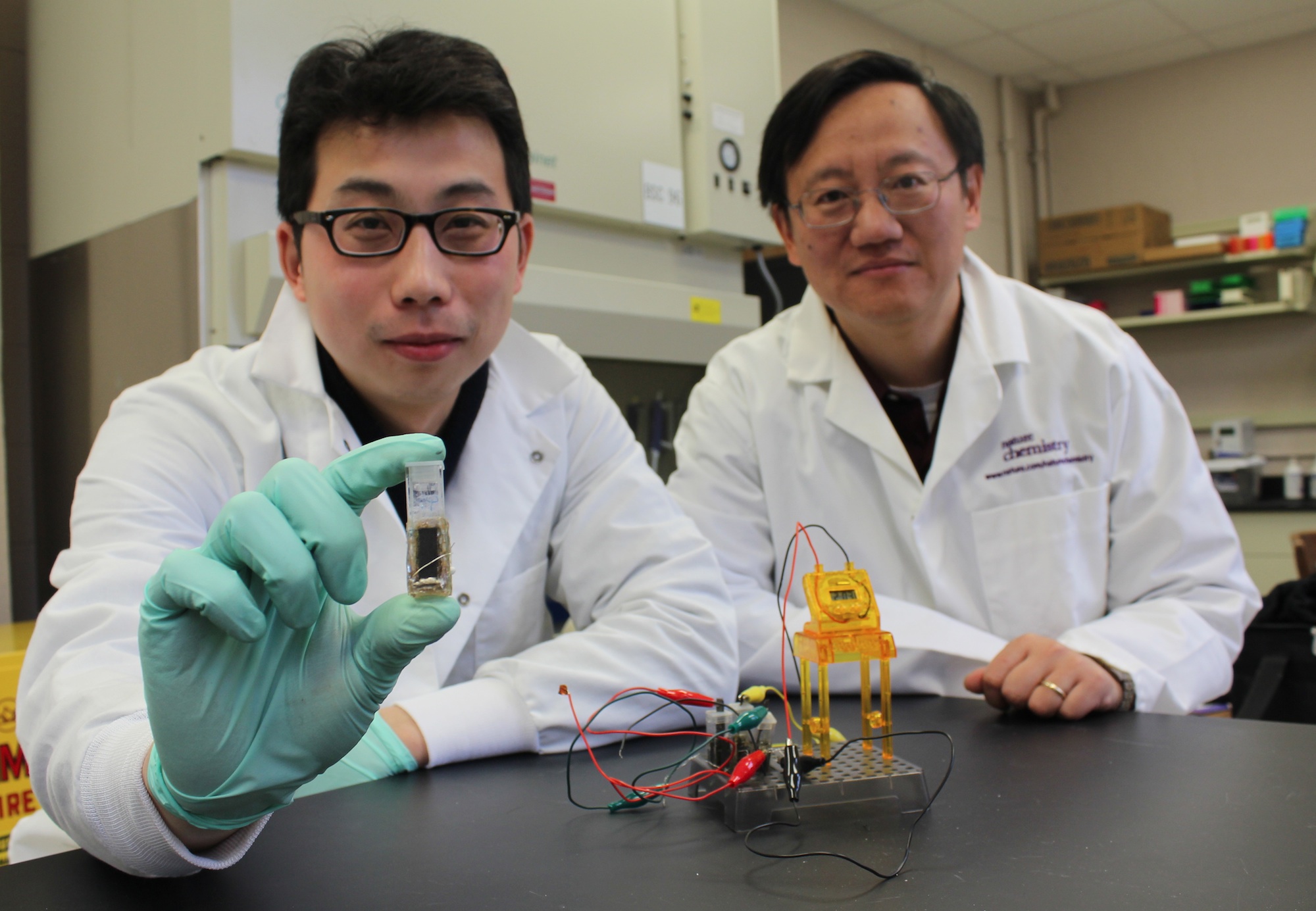

You might like carbs, but probably not in the way Percival Zhang does. Zhang, a chemical engineer at Virginia Tech, runs a lab that’s dedicated to converting carbohydrates into electricity. The lab’s inventions include proofs of concepts showing that carbohydrates are able to power everything from cellphones to cars.
“In my personal view, I think carbohydrates are some of the best chemical compounds for energy storage,” he says. “Nature chose this one already.” He means that living things, including humans, break down molecules of carbohydrates when they need energy to breathe, eat and generally do all the things organisms do. On the other hand, most of humanity’s inventions run on the energy that comes from breaking down molecules called hydrocarbons, which are found in coal, natural gas, and crude oil.
Just last week, Zhang his colleagues debuted a prototype battery that uses maltodextrin, a carbohydrate that often goes into processed foods, as its source of electrons for producing electricity. Other labs have created carbohydrate-based batteries before, but the Zhang lab model extracts a high number of electrons, resulting in a battery that lasts longer. The battery is at least a few years away from being market-ready, but if such technology does become viable in the future, its makers hope it could be an environmentally friendly replacement for the batteries in smartphones and other small devices.
Read on to learn more about how this battery and others work, and to get a glimpse of a carby, carby future. Just a note: Zhang tends to call all carbohydrates “sugars,” which they are, but he doesn’t necessarily mean the stuff you put in tea.
Popular Science: Tell me about this sugar-based battery you made.
Y. H. Percival Zhang: The basic idea is, we want to use sugar because sugar is the most renewable carbon compound.
So sugar is very good, but can we extract all its energy and convert it to electricity? We designed a special enzyme pathway so, for the first time, we can extract 24 electrons per glucose molecule to convert to electricity. Then we can use this electricity to power portable devices.
PS: You’ve also worked on using carbohydrates to make fuel cells in electric cars and biofuels that can go into internal combustion engines. You can do all this with enzymes?
YZ: Yes, most of the time, we use enzymes in our research. We use enzymes to mimic the energy-producing reactions of microorganisms, but when you use only enzymes, you put many enzymes together in a pathway that is not available in nature, and you can do much better than microorganisms. We do a lot of reactions microorganisms cannot do.
For example, like in this sugar battery case, we use enzymes to extract all of the energy. If you try to use a microorganism, the microorganism will duplicate himself and waste a lot of energy. He will not produce as much electricity as we can now.
PS: Do you use enzymes that appear in nature, or do you design your own with synthetic biology?
**YZ: **For now, we use enzymes from natural organisms. As the next step, we will engineer enzymes. That will work much better.
PS: Is there anything else we would be able to do if we had the technology to convert carbohydrates to electricity and vice versa?
**YZ: **The big issue with solar and wind energy is how to store it. So our idea is that in times when you have so much electricity, we can try to generate sugar, because sugar is a chemical compound. You can store sugar for a long time. When you need electricity, you can convert sugar to electricity through a sugar battery.
There are so many competing ideas for storing energy from solar and wind. In my personal view, I think carbohydrates are some of the best chemical compounds for energy storage because nature chose this one already.
PS: Of the these three things you’ve made—batteries for small devices, hydrogen fuel cells for electric cars, and biofuels—is there one you think will reach the market first?
YZ: I think the sugar battery will first reach market. The reason is that the sugar battery is a high-end product. You can sell sugar batteries at a high price. Think about the price of a battery for your watch. Its price is like 100-fold more than a AA battery. But you buy it so infrequently, you don’t care.
Hydrogen fuel cell vehicles will take a long time because you will compete with available vehicle systems. Customers will care about the price. But that’s where the revolution lies.
PS: How do you propose to make sure the world has enough carbohydrates to feed all these batteries and cars? Carbohydrates come from plants, which take up land and water. Couldn’t people overtax those resources?
**YZ: **We need to think about how to produce more carbohydrates in an unnatural way: Artificial photosynthesis.
The idea is we do everything in the bioreactor. No plants. No land. We use limited water and carbon dioxide.
We’re still in the process of finishing this proof of concept. We designed an enzyme pathway, but we need to see whether it works or not.
